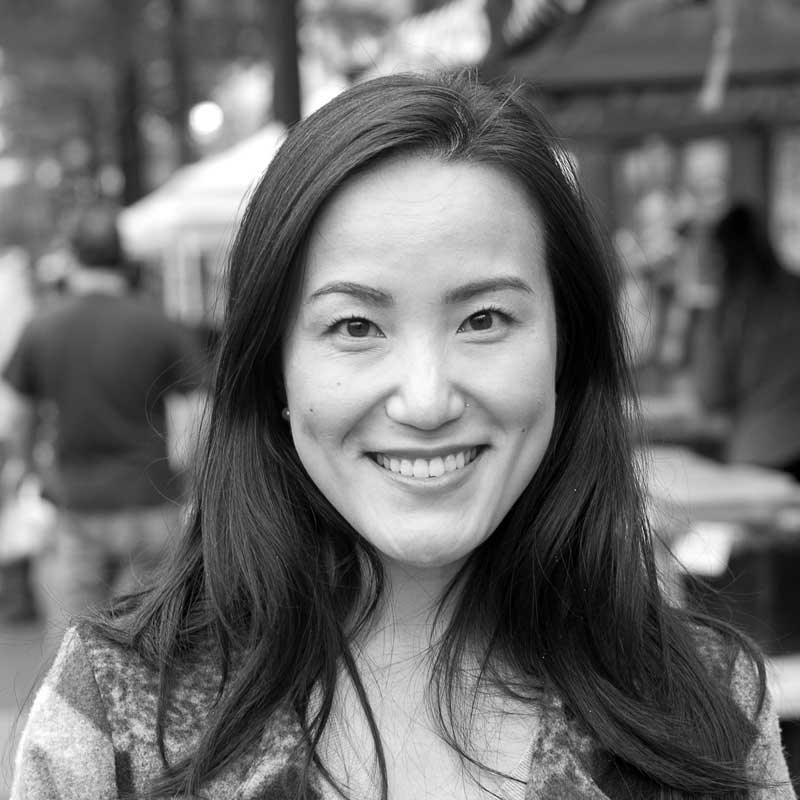How to Get Into a Top MBA Program With Less Than 3 Years of Work Experience

Who Is Considered a “Younger Applicant” and Why It Matters
Age is just a number, or is it? If you are applying to business school with 4–5 years of work experience, then yes, it is. But if you’re applying with fewer, then unfortunately your age could be a red flag to admissions committees.
Your ambition to pursue an MBA early in your career is commendable. However, younger candidates — particularly those with less than three years of experience — face a steeper uphill battle for admission to top-tier programs.
If you’re looking for more guidance on how to navigate the MBA application process as a younger applicant, request a free consultation.
What the Data Says About Age and MBA Admissions
While overall acceptance rates for M7 programs hover between 10% and 12%, applicants with fewer than three years of experience face a unique ‘bar’ for entry. Older candidates (30+) often see acceptance rates dip to 4% or lower. Younger applicants are highly desired, but they must prove accelerated maturity. To match the general pool, younger applicants must show significantly higher impact per year. Similarly, Wharton’s acceptance rate for this youngest cohort is about 10% versus 22% for those slightly older.
Considering overall acceptance rates for these schools fall in the 11–21% range, the data shows that younger applicants must outperform the general pool just to match the odds.
Why Younger Applicants Face More Scrutiny
Admissions committees often assume younger applicants lack the maturity, experience, perspective, and focus that more seasoned professionals bring to the classroom and community. Without those qualities, it can be harder to contribute meaningfully to MBA discussions, project teams, and leadership opportunities.
So how young is “too young”? If you are applying to business school with less than two years of full-time work experience, Admissions committees consider you a younger applicant. With that said, younger applicants can and do get accepted to top MBA programs. But success requires going the extra mile. You must demonstrate self-awareness, depth of experience, and clarity of purpose — not only to thrive in the MBA, but also to enrich others’ experiences.
If you’re a younger applicant—or pursuing an MBA with less than 3 years of work experience — here’s how you can beat the odds and show them that, in fact, age is just a number.
1. Be Strategic About School Selection
At the start of the process, you want to be honest about your goals. Is your goal to matriculate into an MBA program this coming year? Or is it to get into a top tier school?
If your heart is set on an M7 program and you aren’t willing to consider other options, you should be aware of how much more competitive it will be for you than the average applicant.
If, however, you are open to expanding your options in order to get into a program, look into programs that are known to be more open to younger applicants. Yale SOM, Duke Fuqua, UVA Darden, University of Texas McCombs, and Carnegie Mellon Tepper have a track record of admitting younger students who demonstrate exceptional potential.
Do your research and include several “safety” schools so that you have more chances of being admitted into a program.
Consider Deferred Admission Programs
If you are still in college, look into deferred admission programs. Top schools like HBS, Stanford GSB, Wharton, and Kellogg offer these programs specifically for high potential college students where you have the opportunity to be admitted to a top MBA program during college and defer enrollment for 2-5 years.
This is an especially compelling option if you know you’ll be applying to an MBA with less than 3 years of work experience post-graduation.
2. Aim for a Standout GMAT/GRE Score
With fewer years of work experience, you need to prove you’re ready for the academic rigor of business school. One of the clearest ways to do that is by achieving a test score that is higher than the average for your target programs.
A strong GMAT or GRE score sends a signal to the admissions committee that you have the analytical horsepower and focus needed to succeed in the classroom.
This is especially important when applying to an MBA with less than 3 years of work experience, where your academic indicators need to carry more weight.
If you’re wondering whether your score is competitive enough or if a retake is worth it, check out this article on what is a good GMAT score for guidance on how to evaluate your score.
3. Focus on Impact and Leadership in Your Resume
“It’s not the years in your life, but the life in your years that count” is a good quote to keep in mind as you’re putting together your resume.
You may not have as many years of work experience as your peers, but that doesn’t mean you haven’t had compelling experiences. If you worked at a small company or on a lean team where you had outsized responsibilities, you may want to highlight the breadth and depth of your experience.
Use bullet points that are clear, results-oriented, and quantified whenever possible. For example, instead of saying “Supported a product launch,” say “Led user research for product launch projected to increase revenue by 15%.” Numbers help admissions readers quickly understand the scale and outcomes of your work.
Emphasize Leadership and Initiative
Include clear, results-oriented bullet points that showcase your leadership. Leadership experience doesn’t have to mean managing people. It can include leading a project, managing a workstream, or driving an initiative outside the scope of your role.
For example, one of my clients who worked for just 1.5 years at Raymond James highlighted a time she took the initiative to take over an associate’s project while the associate was on vacation and helped drive it to an innovative solution. Though she didn’t get to implement her solution, she earned the recognition of senior leadership and respect of her team through her effort and initiative.
If you’re not sure how to frame your leadership experience in your first few years of work, check out this article on how to demonstrate leadership with limited experience.
Add College Internships (When Relevant)
Also, consider including college internships if they add to your professional story. While for older applicants, including college internships is typically not recommended, for younger candidates — especially those applying to an MBA with less than 3 years of work experience — they can add to total years of work experience and demonstrate early initiative.
4. Use Essays to Highlight Maturity and Your Unique Point of View
You’re not just competing on intellect or potential. You must prove you already have the maturity, perspective, and sense of purpose to thrive in business school and contribute meaningfully.
Show Growth Through Recent Experiences
Start by reflecting on the moments that have shaped your character. Choose stories that demonstrate how you’ve navigated ambiguity, stepped up in challenging situations, or learned from failure.
Avoid defaulting to college or high school anecdotes, unless they are highly formative and directly relevant. Instead, focus on recent experiences that highlight your emotional intelligence, grit, and growth.
Be Clear on Goals and Timing
Your essays should also communicate a strong sense of direction. Admissions committees may assume that younger applicants haven’t had enough experience to know what they want — so prove them wrong.
Your career goals should be clear, specific, and grounded in your experiences to date. Show how the MBA is the natural next step and how you’ve already taken steps toward that future.
Even if an application doesn’t explicitly ask “Why now?”, you should answer it. You need to make a compelling case for why this is the right moment for you to pursue an MBA.
Schools receive more qualified applicants than they can admit. Unless you clearly demonstrate that the timing is purposeful and strategic, it may be easier for them to suggest you wait another year.
Example: Demonstrating Readiness Through Life Experience
One younger client, for example, wrote about immigrating to the U.S. alone at the age of 15. She described how adapting to a new culture and supporting herself through work helped her develop independence, resilience, and a strong sense of identity. She then tied these lessons to her professional choices and long-term vision — leaving no doubt that she had the focus and life experience to contribute meaningfully to an MBA classroom.
In short, your essays should tell a story that makes the reader say, “This person may be young, but they’re ready.” This is the story every applicant needs to tell when applying to an MBA with less than 3 years of work experience.
5. Use Recommendation Letters to Reinforce “Readiness”
Your recommenders can play a pivotal role in countering age-related biases. Choose people who know you well professionally and can speak credibly about your maturity, work ethic, and leadership potential.
Ideally, avoid using college professors unless there is no better alternative. Relying on academic references only draws more attention to your limited work history.
Ask Recommenders to Reinforce Your Potential
Ask your recommenders to include anecdotes that highlight how you’ve demonstrated initiative, ownership, or strategic thinking beyond your years.
It can be helpful to provide your recommenders with context or examples you’d like them to highlight. This ensures consistency across your application and helps highlight stories that you otherwise won’t have a chance to include in your essays.
For applicants targeting an MBA with less than 3 years of work experience, recommendation letters are a powerful opportunity to reinforce readiness and address any perceived gaps in experience.
For additional guidance, you can also review how Stanford GSB frames its expectations for recommenders in its official letters of recommendation guidelines.
Applying to business school as a younger candidate is undoubtedly more challenging, but it’s far from impossible to get into a top program. The key is to be strategic, thoughtful, and proactive in how you present your candidacy. Applying early shows guts and ambition — qualities that, when backed with substance, stand out in any applicant pool.
Even if you don’t get in this time, the process of applying can help you gain clarity and direction in your career. The worst-case scenario is simply that you wait another year or two and apply again, this time with even more experience, insight, and purpose.
Take the guesswork out of your next steps. Schedule a free consultation with someone who’s helped hundreds of applicants like you get accepted to the M7 programs. During those 30 minutes, you’ll get personalized advice and a clear path forward in the application process.




